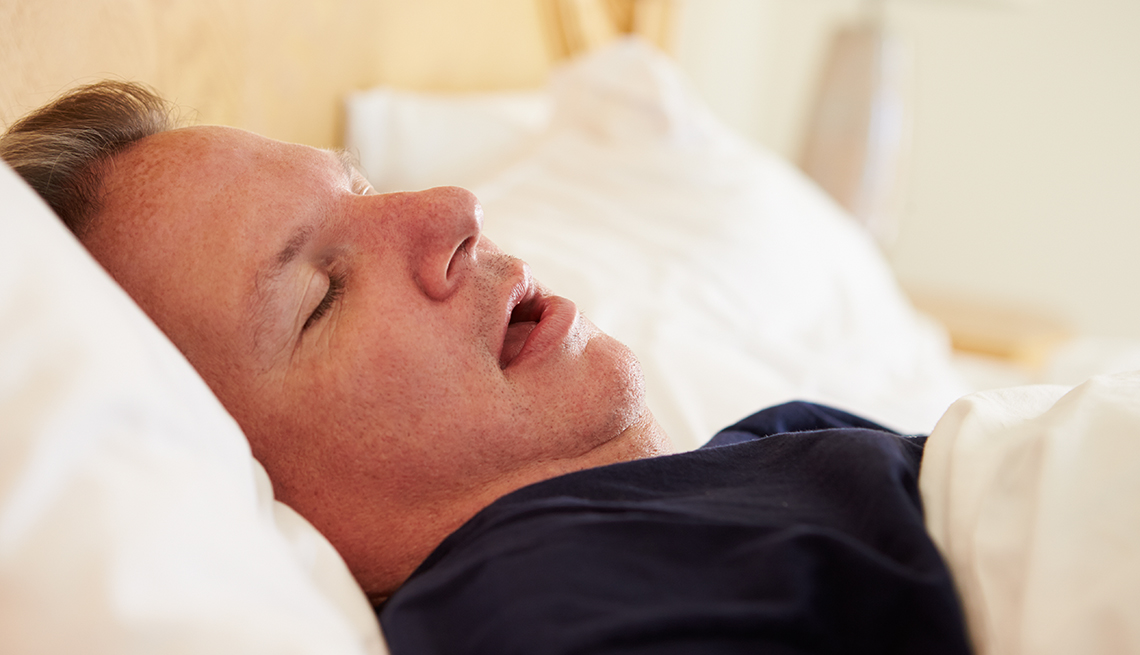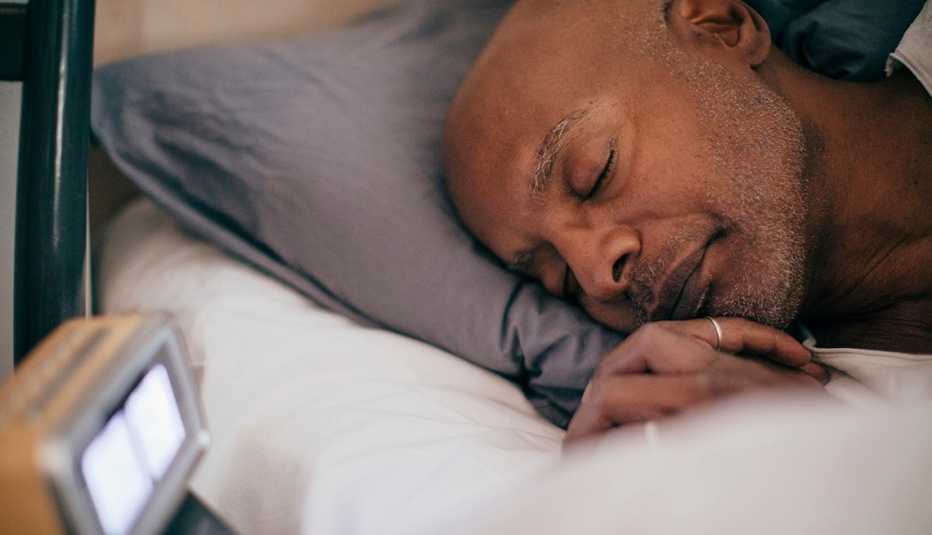Staying Fit
If sawing logs is part of your sleep routine, you’re in good company. Nearly half (45 percent) of U.S. adults admit to snoring occasionally, Johns Hopkins Medicine estimates, while about 25 percent are regular snorers. But just because snoring is common doesn’t mean it should be ignored. Those nighttime purrs, snorts and grumbles could be a sign of a bigger health issue.
Snoring happens when air pushes past soft tissues that line the airway in the mouth and throat, explains Melissa Lipford, M.D., a neurologist in the sleep medicine group at the Mayo Clinic. “As we sleep at night, these soft tissues relax, just like our body relaxes,” she says. And when you breathe in and out, “they start to vibrate, and that vibratory sound is actually what snoring is.”


AARP Membership— $12 for your first year when you sign up for Automatic Renewal
Get instant access to members-only products and hundreds of discounts, a free second membership, and a subscription to AARP the Magazine.
Sounds innocent enough, right? It can be. “Sometimes snoring is just snoring,” Lipford says, and something as simple as changing your position — try sleeping on your side instead of your back, for example — can put a stop to it.
“But one of the things we worry about the most is it can be a sign of obstructive sleep apnea. And basically that’s when those soft tissues relax so much that they actually obstruct the airway,” Lipford says.
Is your snoring due to sleep apnea?
Obstructive sleep apnea is a relatively common disorder, especially among older adults, that causes a person to stop breathing in their sleep — sometimes up to 30 times every hour. Because the brain is constantly waking the body up to take a breath, “the sleep of someone with obstructive sleep apnea is peppered with all of these wake-ups,” Lipford says. “These patients really aren't able to get into those deeper, more consolidated stages of sleep.”



































































